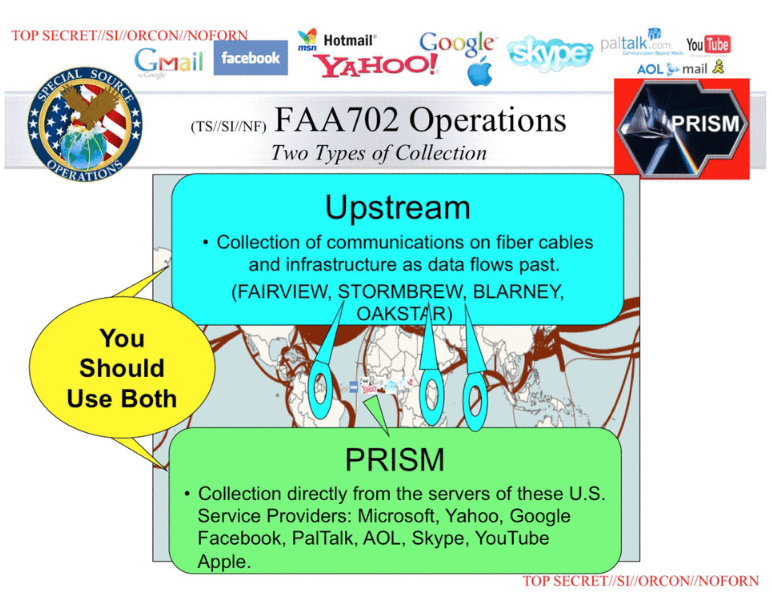U.S. Constitution
See other U.S. Constitution Articles
Title: US spies still won't tell Congress the number of Americans caught in dragnet
Source:
Ars Technica
URL Source: https://arstechnica.com/tech-policy ... y-how-many-americans-targeted/
Published: Mar 11, 2017
Author: David Kravets
Post Date: 2017-03-11 18:18:00 by Hondo68
Keywords: President Donald Trump, wants law renewed, violate Fourth Amendment
Views: 2439
Comments: 4
In 2013, a National Security Agency contractor named Edward Snowden revealed US surveillance programs that involved the massive and warrantless gathering of Americans' electronic communications. Two of the programs, called Upstream and Prism, are allowed under Section 702 of the Foreign Intelligence Surveillance Act. That section expires at year's end, and President Donald Trump's administration, like his predecessor's administration, wants the law renewed so those snooping programs can continue. That said, even as the administration seeks renewal of the programs, Congress and the public have been left in the dark regarding questions surrounding how many Americans' electronic communications have been ensnared under the programs. Congress won't be told in a classified setting either, despite repeated requests. Rep. John Conyers, a Democrat from Michigan and member of the House Judiciary Committee, told a panel hearing last week that Congress needed the numbers to help it decide whether to reauthorize the programs. "The members of this committee and the public at large require that estimate to engage in a meaningful debate," he said. This isn't the first time lawmakers have been stonewalled on the issue. Sen. Ron Wyden, a Democrat from Oregon and a member of the Senate Intelligence Committee, had asked for the information in 2011, 2012, and 2014, and he's renewing the request again. Despite the lack of information, Congress has repeatedly renewed the programs even before Snowden revealed them. "I and other members of Congress have been seeking an answer to this question since 2011. We posed the question again in the context of the reauthorization of Section 702. It is now central to the debate this year over the reauthorization of the program, which you have described as your 'top legislative priority,'" Wyden wrote in a letter to Daniel Coats, Trump's nominee for director of national intelligence. Coats, however, has told Wyden he would "do everything I can" to "get you that number." However, Coats did not guarantee he would do it. For its part, the Electronic Frontier Foundation is urging Congress to let the spy programs expire. "We've long argued that the surveillance programs under Section 702 are not targeted, do not have sufficient oversight, and violate Fourth Amendment protections. That's why we’re calling on Congress to let the authority sunset," the EFF said. One of the programs at issue, PRISM, authorizes the NSA to siphon bulk data from Apple, Facebook, Google, Microsoft, Yahoo, and other online companies, according to a classified PowerPoint presentation Snowden divulged. The other program at issue, Upstream, enables the NSA to monitor and copy traffic flowing through the Internet backbone. All of this spying is supposed to target foreigners, but Americans' electronic communications are ensnared as well. The authorities call this "incidental" collection. Privacy advocates call it a backdoor to seize Americans' data without court warrants. Still, US spies say they don't track the number of Americans caught in this dragnet, in part to protect Americans' privacy. Performing this task would require spies to de-anonymize phone numbers and IP addresses to determine whether they're American, according to April Doss, a former NSA lawyer who testified (PDF) before the House Judiciary Committee on March 1. As her testimony laid out: A requirement to count the number of U.S. person communications that are incidentally acquired under Section 702 would require the Intelligence Community to conduct exhaustive analysis of every unknown identifier in order to determine whether they are being used inside or outside the U.S., and whether their users might be U.S. persons located anywhere in the world. NSA does not—nor should it—collect or maintain comprehensive directories of the communications identifiers used by U.S. persons. However, in order to perform a reliable count of U.S. person communications in 702 collection, the Intelligence Community would have to create and maintain precisely such a database. The very creation of these reference databases would constitute an unnecessary and unwarranted intrusion on the privacy of U.S. persons; without specific statutory authorization, it would likely also be unlawful, since it would be both intrusive and unrelated to any need for foreign intelligence gathering.22 Further, searching for U.S. person information would require intelligence agencies to divert scarce analyst time and computing resources away from intelligence activities in order to hunt for the communications of U.S. persons whose information is not related to an authorized intelligence need (and whose information would never be looked at by the government but for this requirement). Section 702 of the Foreign Intelligence Surveillance Act, which authorizes the Upstream and Prism programs, expires December 31. Poster Comment:Electronic surveillance programs Prism, Upstream hang in the congressional balance.

Post Comment Private Reply Ignore Thread
Top • Page Up • Full Thread • Page Down • Bottom/Latest
Begin Trace Mode for Comment # 2.
#2. To: hondo68 (#0)
Incidental collection of information in itself is enough to get any information retrieved and used against that subject without their knowledge, consent, or a warrant, thrown out as it violates the fruit of the poisoned tree doctrine.
There are no replies to Comment # 2. End Trace Mode for Comment # 2.
Top • Page Up • Full Thread • Page Down • Bottom/LatestAll of this spying is supposed to target foreigners, but Americans' electronic communications are ensnared as well. The authorities call this "incidental" collection. Privacy advocates call it a backdoor to seize Americans' data without court warrants.
Replies to Comment # 2.
[Home] [Headlines] [Latest Articles] [Latest Comments] [Post] [Mail] [Sign-in] [Setup] [Help] [Register]

